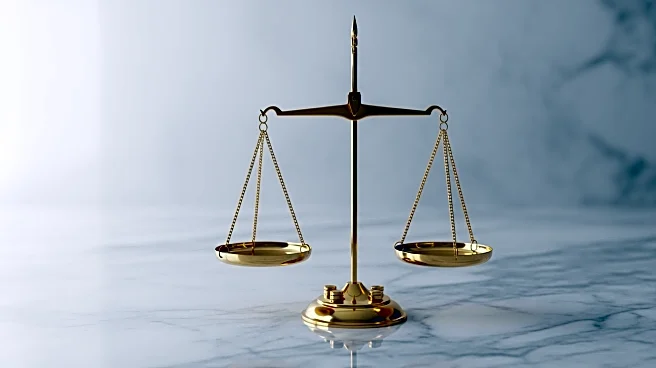What's Happening?
A federal appeals court has upheld a judge's order requiring President Trump's administration to fully fund SNAP benefits for 42 million low-income Americans during the ongoing government shutdown. The
1st U.S. Circuit Court of Appeals declined to halt the decision by a Rhode Island judge directing the USDA to spend $4 billion set aside for other purposes to ensure full SNAP benefits. Supreme Court Justice Ketanji Brown Jackson has placed a temporary hold on the lower court order, leaving the status of the SNAP program uncertain.
Why It's Important?
The court's ruling is crucial for millions of Americans relying on SNAP benefits for food assistance. The decision highlights the legal and ethical obligations of the government to provide essential services during a shutdown. The temporary hold by Justice Jackson adds uncertainty to the situation, emphasizing the complexities of judicial intervention in budgetary matters. The resolution of this legal battle will have significant implications for social welfare programs and the government's approach to managing fiscal challenges during a shutdown.
What's Next?
Justice Jackson's temporary hold remains in place for 48 hours after the 1st Circuit decision, leaving the status of SNAP benefits uncertain. The administration has directed states to undo any steps taken to issue full benefits, risking financial penalties. Further legal and legislative actions are anticipated as stakeholders, including advocacy groups and political leaders, continue to influence the resolution of this issue. The Senate's move to end the shutdown may provide a pathway for resolving the funding impasse.
Beyond the Headlines
The legal battle over SNAP funding raises broader questions about the government's responsibility to protect vulnerable populations during fiscal crises. The ethical implications of withholding food aid highlight societal values around social welfare and support for low-income Americans.









